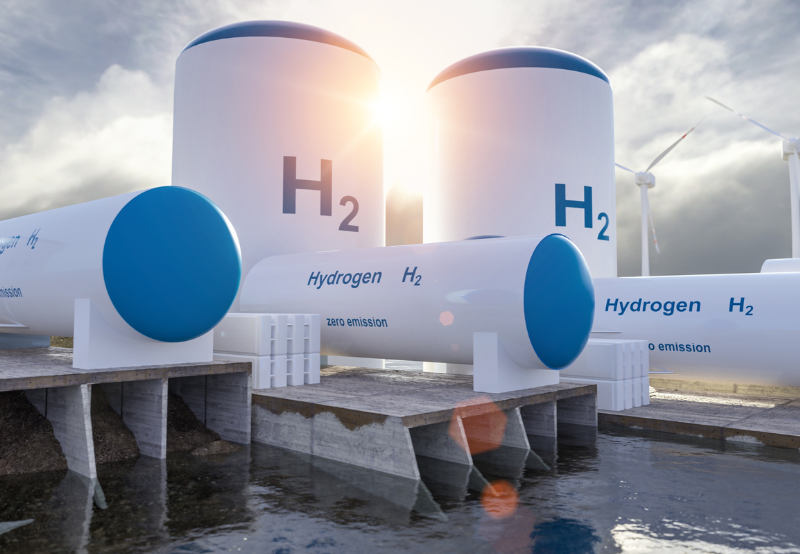Oman’s ambitious goal to become a major player in the global hydrogen economy has created exciting opportunities for job seekers and professionals alike. As the country transitions towards a producer economy with a focus on renewable energy, the hydrogen industry is poised for significant growth. In this blog, we will explore the essential skills and knowledge that individuals aspiring to excel in Oman’s hydrogen industry should develop. By acquiring these competencies, individuals can position themselves for thriving careers in this dynamic sector.
Understanding the Fundamentals of Hydrogen Technology: Today, the global market for providing hydrogen to industrial users is significant. The demand for hydrogen, which has increased more than threefold since 1975, is expected to keep rising. Hydrogen is nearly entirely produced using fossil fuels, with 6% of the world’s natural gas and 2% of its coal. Developing a strong understanding of hydrogen technology fundamentals will be crucial for professionals entering the industry.
Graph 1: Global demand for pure hydrogen, 1975-2018; Source: IEA, Global demand for pure hydrogen, 1975-2018, IEA, Paris https://www.iea.org/data-and-statistics/charts/global-demand-for-pure-hydrogen-1975-2018, IEA. Licence: CC BY 4.0
Renewable Energy Systems and Integration: Renewable energy sources are the backbone of sustainable hydrogen production. According to the International Renewable Energy Agency (IRENA), Oman has vast renewable energy potential, particularly in solar and wind resources. With investments in renewable energy projects, Oman aims to produce at least 1 million tons of renewable hydrogen annually by 2030. The 2040 hydrogen target would represent 80% of Oman’s current LNG exports in energy-equivalent terms, while achieving the 2050 target would almost double them. This emphasizes the importance of skills in renewable energy systems and their integration with hydrogen infrastructure.
Graph 2: Size of Oman’s LNG exports in 2021 vs. renewable hydrogen export project pipeline and renewable hydrogen targets (2030, 2040, 2050); Source: chrome-extension://efaidnbmnnnibpcajpcglclefindmkaj/https://iea.blob.core.windows.net/assets/338820b9-702a-48bd-b732-b0a43cda641b/RenewableHydrogenfromOman.pdf)
Graph 2: Hydrogen production costs using natural gas in selected regions, 2018; Source: IEA, Hydrogen production costs using natural gas in selected regions, 2018, IEA, Paris https://www.iea.org/data-and-statistics/charts/hydrogen-production-costs-using-natural-gas-in-selected-regions-2018-2, IEA. Licence: CC BY 4.0
Environmental and Sustainability Considerations: Some in the region are turning to multi-colored hydrogen as a more environmentally sound answer as hydrocarbon-rich countries in the Gulf strive to minimize their carbon emissions. Hydrogen is viewed as a potential low-carbon or zero-carbon fuel that is essential for the transition away from fossil fuels, along with renewable sources like solar and wind. The most prevalent form of hydrogen is grey, which is produced using a similar steam reforming method to that used to produce blue hydrogen. Hydrogen has the potential to revolutionize the world’s energy sector, with specific advantages for Gulf nations. Professionals equipped with knowledge about environmental impacts, sustainability assessments, and circular economy approaches will contribute to the industry’s growth and help drive a sustainable energy transition.
Grey Hydrogen
Production: Via fossil fuels such as coal or natural gas without carbon capture and storage technology.
Process: Use of high-temperature gasification to convert the fossil fuel into hydrogen gas.
Considered to be the least desirable of the types, due to the significant emissions associated with grey hydrogen.
Green Hydrogen
Process – electrolysis splits water into its two components: hydrogen and oxygen
Production: Renewable Energy sources such as wind, solar, and hydro power.
Suitable Application: Powering vehicles
Key Benefits: Lowest contribution to greenhouse gas emissions. Reduced reliance on fossil fuels
Blue Hydrogen
Production: Via use of natural gas as the feedstock instead of water.
Process: Conversion of natural gas into hydrogen and carbon dioxide through steam methane reforming (SMR). The converted carbon dioxide is captured and stored underground through carbon capture, utilization, and storage (CCUS).
Key Benefits: Lower Cost and preventing the release of into the atmosphere.
Communication and Collaboration: In an effort to position the oil-producing nation as a global leader in renewable energy technologies, Oman plans to construct one of the largest green hydrogen plants in the world. Beginning in the Arabian Sea’s Al Wusta governorate in 2028 is the planned commencement of construction. It will be constructed in stages and should be fully operational by 2038, using 25 gigawatts of wind and solar energy. The state-owned oil and gas corporation OQ, the renewable hydrogen developer InterContinental Energy with headquarters in Hong Kong, and the energy investor Enertech with headquarters in Kuwait make up the coalition of companies driving the $30 billion (£21 billion) project.
Effective communication and collaboration skills are essential for professionals in the hydrogen industry to engage stakeholders, drive investments, and foster partnerships. International collaboration will play a critical role in the development of the hydrogen sector, including the establishment of trade partnerships and shipping routes. Professionals who can effectively communicate complex technical concepts and collaborate across multidisciplinary teams will excel in this industry.
As Oman forges ahead in its journey to become a hydrogen hub, the demand for skilled professionals in the hydrogen industry will continue to grow. By proactively developing the skills discussed in this blog, individuals can position themselves for successful and fulfilling careers in Oman’s hydrogen sector. With the global hydrogen market projected to reach significant heights and Oman’s commitment to renewable hydrogen production, investing in skill development and staying updated with industry trends will be key to seizing the abundant opportunities presented by Oman’s growing hydrogen industry.
Professionals seeking to excel in Oman’s burgeoning hydrogen industry can benefit immensely from pursuing an MBA with a specialization in Operations and Project Management or an MBA in Engineering Management. Such advanced degree programs in Oman provide a comprehensive toolkit that aligns perfectly with the demands of this evolving sector. The transition to a producer economy in Oman’s hydrogen industry requires individuals to possess a strong grasp of hydrogen technology fundamentals. An MBA with Operations and Project Management equips professionals with the skills to efficiently plan, execute, and manage complex projects, ensuring the successful implementation of hydrogen technology initiatives. Similarly, an MBA in Engineering Management empowers individuals to bridge the gap between technical knowledge and managerial expertise, facilitating the seamless integration of renewable energy systems with hydrogen infrastructure—a critical factor in Oman’s renewable hydrogen production targets. Moreover, as environmental considerations take center stage, these MBA programs instill knowledge about sustainability assessments, circular economy approaches, and environmental impacts. Effective communication and collaboration, key components of both MBA specializations, will be vital for professionals to engage stakeholders, drive investments, and foster international partnerships, essential for Oman’s global leadership aspirations in renewable energy technologies. With the projected growth of the hydrogen market and Oman’s commitment to sustainable hydrogen production, acquiring these specialized MBA degrees can position professionals for success in Oman’s dynamic hydrogen industry.
References
https://www.iea.org/reports/the-future-of-hydrogen
https://www.zawya.com/en/business/omans-geo-hub-worlds-6th-largest-hydrogen-project-irena-xyf0t6yt
https://www.weforum.org/agenda/2021/07/clean-energy-green-hydrogen/
https://www.cnbc.com/2022/01/06/what-is-green-hydrogen-vs-blue-hydrogen-and-why-it-matters.html





